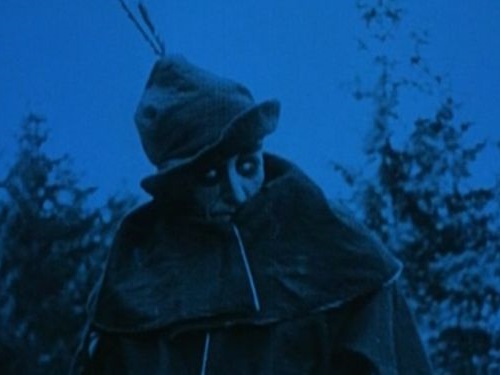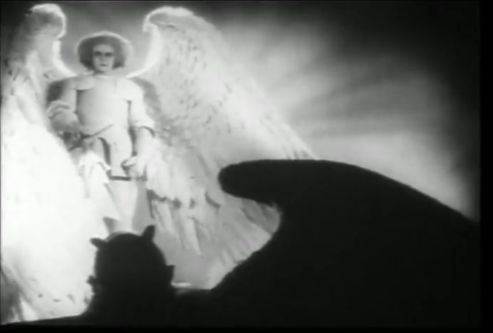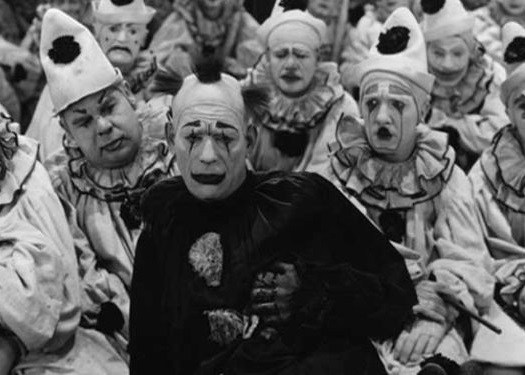Intermarkets' Privacy Policy
Donate to Ace of Spades HQ!
aceofspadeshq at gee mail.com
Buck:
buck.throckmorton at protonmail.com
CBD:
cbd at cutjibnewsletter.com
joe mannix:
mannix2024 at proton.me
MisHum:
petmorons at gee mail.com
J.J. Sefton:
sefton at cutjibnewsletter.com
Saturday Evening Movie Thread - 2/14/2026
Hobby Thread - February 14, 2026 [TRex]
Ace of Spades Pet Thread, Valentine's Day
Gardening, Home and Nature Thread, Holiday Weekend
Happy Valentine's Day! Caution: sexual predators are not just on Epstein Island
The Classical Saturday Coffee Break & Prayer Revival
Daily Tech News 14 February 2026
Roses Are Red, Violets Are Free. Because I Love You, Have Tonight's ONT!
Friday the 13th Cafe
Jim Sunk New Dawn 2025
Jewells45 2025
Bandersnatch 2024
GnuBreed 2024
Captain Hate 2023
moon_over_vermont 2023
westminsterdogshow 2023
Ann Wilson(Empire1) 2022
Dave In Texas 2022
Jesse in D.C. 2022
OregonMuse 2022
redc1c4 2021
Tami 2021
Chavez the Hugo 2020
Ibguy 2020
Rickl 2019
Joffen 2014
maildrop62 at proton dot me
Saturday Evening Movie Thread 05-01-2021 [Hosted By: Moviegique]
Silents Are Golden -- Part II: The Weird
In Silents Are Golden Part I, ace link, gique link that you can comment on without getting banned), we looked at some films in the talkie era that with long stretches of no-dialogue, and you guys came up with some great ones. Spaghetti westerns, action films, and great dramas, many of which I had thought of but elided for brevity (ha) and many others that I didn't know or had forgotten.
One thing that came up is that "silent" movies were never actually silent. Music was mandatory. At one point, movie houses were the primary form of employment for musicians—and this during the dawning of the "big band" era. Rudimentary sound-effects were also employed in some cases, though they were usually at least quasi-musical, like whistles or drums.
So, when we say "silent", we really mean "without dialogue" and—for me personally—words. That is to say, there are silents with massive amounts of cards explaining every little detail and snip of dialogue and plot, and they feel (to me) like movies that are "waiting for the talkies". They're attempts to put stage plays on the screen (like a lot of the early talkies did) or even books, and they don't really exploit the medium.
Once again, you can download freely and legally almost all the films mentioned here. Some are for sale in cleaned-up/restored form as well. Many of these films have more cuts than Blade Runner and there's a wide variation on music as well—and frame rates!—so be careful about which you pick. Ironically, there is sometimes a language barrier, as with Faust, which has a wonderfully scored version on The Internet Archive—but with title cards only in German! (However, a lot of these movies have title cards in one language but easily available subs in English.)
The Weird
My entrée to the world of silent movies was not, in fact, the comedies but horror and sci-fi. My grade school did a showing of Nosferatu which was quite affecting to me as an eight-year old. Around the same time, Jack Palance played "Dracula" in a TV movie, which I also found pretty gripping. Today, however, I still get the chills from the silent—the set design and the remarkable fidelity to the (purloined) novel's vision of the Count are quite literally iconic (and the source of the trope that sunlight kills vampires).

Tinted sunlight, however, has no effect.
Also, since they were free, our UHF stations would frequently play silent movies (and Flash Gordon serials, which is another story), especially Metropolis. I can't say how many different versions of this movie I've seen with how many different soundtracks. (I did not see the Moroder version, however.) One claim is that it originally ran 3 1/2 hours, though the recent restoration claims to be all but five minutes of it and is only around 2 1/2 hours. There is debate over what frame rate it should be run at. Moroder claimed that director Fritz Lang wanted the film tinted. I reviewed the most recent version, but the more I see this movie, the less relevant I think the details of its content are. Not because Western society is not eternally thrust into the "fascism vs. communism" false dichotomy, but because Metropolis is about something greater aesthetically.
We can go 25 years back to Georges Méliès' charming little shorts to see the seeds of special effects being used to create worlds, and many of the films we'll cover later do a great job of creating scale and epic feel from their visuals. (1914's Cabiria, for example, is said to have influenced Metropolis.) Metropolis is the culmination of the art—a fully-realized fantasy world that stands alone, cinematically, at least until the 1939 Wizard of Oz. (And you have to go decades forward from Oz before you can find challengers to either.) I don't use the phrase "must see," but it's hard to imagine any earnest student of film not seeing this one.
Lang was fond of—and good at—the epic fantasy. I'm not saying Peter Jackson studied his two-part Die Nibelungen series before doing Lord of the Rings but I'm not not saying that either. He would close out his silent career with the Space Epic Woman in the Moon. If Metropolis is the king of fantastic world-building, Woman is king (queen?) of hard-sci-fi for 1929, complete with epic special effects, a countdown, a rocket with multiple stages, G-forces knocking the crew unconscious, weightlessness and a captain's log! All that's missing is a matte by Bonestell! (I find this far superior to the 1924 Soviet film Aelita, which is similar though there is some great set design in the earlier work. It's also interesting to me how these films prefigure later '50s potboilers like Cat Women in the Moon.) Now, on top of that, you get a fully human-compatible moon atmosphere, a divining rod which aggressively leads to water, and comic book reading kid who's smart enough to fly the ship but not quite bright enough to figure out the implications of losing half the oxygen. Frankly, if you were looking for a Steampunk replacement, you could worse than Art Deco Punk.

It's huge!
A good part of Lang's success is probably attributable to the writing talents of his wife, Thea von Harbou, who collaborated with him from his early classic Destiny (1921) through M(1932), when she joined the Nazi party. She would also have a successful career post-war. (The villain in Woman recalls a young Hitler, which must've created some marital stress.)
Lang fled his wife and Germany to go on to a successful Hollywood career, after directing Peter Lorre in his breakout role as a child-serial-killer Hans Beckert in M, which would serve as the inspiration for Randy Newman's creepy "In Germany Before The War". (Lucas and Spielberg would claim Lang's post-WWI serial, The Spiders, served as their inspiration for the Indiana Jones movie and, while there are clearly influences—as there are from M!—in Raiders, we can speculate they were deflecting at least a little from accusations they had straight up lifted the 1954 Charlton Heston film, Secret of the Incas.)Nosferatu's director F.W. Murnau (whose Hollywood career was cut short by a fatal auto accident) also gave us a tremendously fun version of Faust. Starting with a beautifully shot image of the War between Heaven and Hell, and the Devil challenging the archangel Gabriel to prove there is a virtuous man on Earth, the movie goes into some weighty topics before devolving into an almost slapstick comedy around the third act where Satan is romantically pursued by an aggressive housefrau. (It comes back around by the end, but I'm not sure how or whether that comic section works, frankly.) An American version of Faust by D.W. Griffith the same year called Sorrows of Satan never quite reaches the same heights, but does feature some female nudity (in the European cut).

An archangel confronts Mephisto.
The Phantom Carriage is a Swedish supernatural tale of a wicked man who dies and has to ferry the evil dead to Hell for the next year (where each day seems like 100 years!). It's often regarded as a horror film but the fear it conveys is a moralistic one; The ghost is just a vehicle for seeing the depths of despair one's acts can drive others to (sort of like "A Christmas Carol"). That said, Kubrick lifted the axe-to-the-door bit from The Shining almost straight-up from this film. Ingmar Bergman is said to have watched this movie annually and, yeah, even an ignoramus like me who's never seen a Bergman film can pick up the influences.
Next to Nosferatu, The Cabinet of Dr. Caligari is a good place to start your "weird" silent movie viewing, if for no other reason than it is quite short (about 75 minutes). It's also easily among my favorite horror movies, with its mad set design and other-worldly feel. An insane hypnotist uses a somnambulist to carry out crimes for him, including kidnapping a girl whose fianceé knows Caligari is behind it all but can prove nothing. If Faust has some great narrow, twisty street-scenes, it's because that's the way the streets in those old European cities are. Caligari's streets are designed to be what H. P. Lovecraft would've called "non-Euclidean".
If the plots of these films strike you as especially dark and seedy, well: yeah. German Expressionism arose as a reaction to the horrors of WWI and—one can't help but speculate—in anticipation of the horrors foreshadowed by events unfolding in the Weimar Republic. Consider, for example, the Frankenstein-inspired novel Alraune, in which a professor takes semen from a hanged murderer and impregnates a prostitute with it to create a child who has no concept of love was filmed no fewer than four times between 1918 and 1930.
Not to leave the Americans out in the cold, during this time period Lon Chaney reigned supreme, but it's not always easy to see his films and while he was great, the movies he was in did not always age well. I love Phantom of the Opera—and once managed to catch a showing with a live organist— and when Chaney is on, the movie crackles. When he's not, you're mostly waiting for him to appear. This is back when makeup hurt—a lot—and there seems to have been no limit to what sort of torture Chaney would put himself through. He stars in Tod Browning's 1927 body-horror classic The Unknown (with a 19-23 year old Joan Crawford, whose birthdate is in some dispute) which benefits greatly from being, basically, all Chaney all the time.
We'll come back to Chaney next time when we cover the dramas. Until then: Shhhhhh!

"There's nothing funny about a clown in the moonlight." — Lon Chaney
Additional Blond Agent: "Payback. "Stop it, I'm getting misty." ..."
Blonde Morticia: " I don't think Europe can be saved without great ..."
Mark Andrew Edwards, Buy ammo [/b] [/i]: "I am...reserving full comment until I get finished ..."
Eromero: "5 Hard to pick my favorite vengeance movie but th ..."
Ben Had: "Rob Roy has such a good ending. ..."
BarelyScaryMary : "Any one mention Point Blank with Lee Marvin Pos ..."
gKWVE: "I miss Paxton. I'll not miss Joe Biden. (Hunter, ..."
Javems : "Any one mention Point Blank with Lee Marvin ..."
Anon Y. Mous: ">>>Noting that, unlike most movie threads and vide ..."
BarelyScaryMary : "I liked the Professional. Or Leon the Profesional. ..."
Ben Had: "Have any of you seen "Unthinkable " with Samuel J ..."
Saturday Evening Movie Thread - 2/14/2026
Hobby Thread - February 14, 2026 [TRex]
Ace of Spades Pet Thread, Valentine's Day
Gardening, Home and Nature Thread, Holiday Weekend
Happy Valentine's Day! Caution: sexual predators are not just on Epstein Island
The Classical Saturday Coffee Break & Prayer Revival
Daily Tech News 14 February 2026
Roses Are Red, Violets Are Free. Because I Love You, Have Tonight's ONT!
Friday the 13th Cafe
Paul Anka Haiku Contest Announcement
Integrity SAT's: Entrance Exam for Paul Anka's Band
AllahPundit's Paul Anka 45's Collection
AnkaPundit: Paul Anka Takes Over the Site for a Weekend (Continues through to Monday's postings)
George Bush Slices Don Rumsfeld Like an F*ckin' Hammer
Democratic Forays into Erotica
New Shows On Gore's DNC/MTV Network
Nicknames for Potatoes, By People Who Really Hate Potatoes
Star Wars Euphemisms for Self-Abuse
Signs You're at an Iraqi "Wedding Party"
Signs Your Clown Has Gone Bad
Signs That You, Geroge Michael, Should Probably Just Give It Up
Signs of Hip-Hop Influence on John Kerry
NYT Headlines Spinning Bush's Jobs Boom
Things People Are More Likely to Say Than "Did You Hear What Al Franken Said Yesterday?"
Signs that Paul Krugman Has Lost His Frickin' Mind
All-Time Best NBA Players, According to Senator Robert Byrd
Other Bad Things About the Jews, According to the Koran
Signs That David Letterman Just Doesn't Care Anymore
Examples of Bob Kerrey's Insufferable Racial Jackassery
Signs Andy Rooney Is Going Senile
Other Judgments Dick Clarke Made About Condi Rice Based on Her Appearance
Collective Names for Groups of People
John Kerry's Other Vietnam Super-Pets
Cool Things About the XM8 Assault Rifle
Media-Approved Facts About the Democrat Spy
Changes to Make Christianity More "Inclusive"
Secret John Kerry Senatorial Accomplishments
John Edwards Campaign Excuses
John Kerry Pick-Up Lines
Changes Liberal Senator George Michell Will Make at Disney
Torments in Dog-Hell
The Ace of Spades HQ Sex-for-Money Skankathon
A D&D Guide to the Democratic Candidates
Margaret Cho: Just Not Funny
More Margaret Cho Abuse
Margaret Cho: Still Not Funny
Iraqi Prisoner Claims He Was Raped... By Woman
Wonkette Announces "Morning Zoo" Format
John Kerry's "Plan" Causes Surrender of Moqtada al-Sadr's Militia
World Muslim Leaders Apologize for Nick Berg's Beheading
Michael Moore Goes on Lunchtime Manhattan Death-Spree
Milestone: Oliver Willis Posts 400th "Fake News Article" Referencing Britney Spears
Liberal Economists Rue a "New Decade of Greed"
Artificial Insouciance: Maureen Dowd's Word Processor Revolts Against Her Numbing Imbecility
Intelligence Officials Eye Blogs for Tips
They Done Found Us Out, Cletus: Intrepid Internet Detective Figures Out Our Master Plan
Shock: Josh Marshall Almost Mentions Sarin Discovery in Iraq
Leather-Clad Biker Freaks Terrorize Australian Town
When Clinton Was President, Torture Was Cool
What Wonkette Means When She Explains What Tina Brown Means
Wonkette's Stand-Up Act
Wankette HQ Gay-Rumors Du Jour
Here's What's Bugging Me: Goose and Slider
My Own Micah Wright Style Confession of Dishonesty
Outraged "Conservatives" React to the FMA
An On-Line Impression of Dennis Miller Having Sex with a Kodiak Bear
The Story the Rightwing Media Refuses to Report!
Our Lunch with David "Glengarry Glen Ross" Mamet
The House of Love: Paul Krugman
A Michael Moore Mystery (TM)
The Dowd-O-Matic!
Liberal Consistency and Other Myths
Kepler's Laws of Liberal Media Bias
John Kerry-- The Splunge! Candidate
"Divisive" Politics & "Attacks on Patriotism" (very long)
The Donkey ("The Raven" parody)

